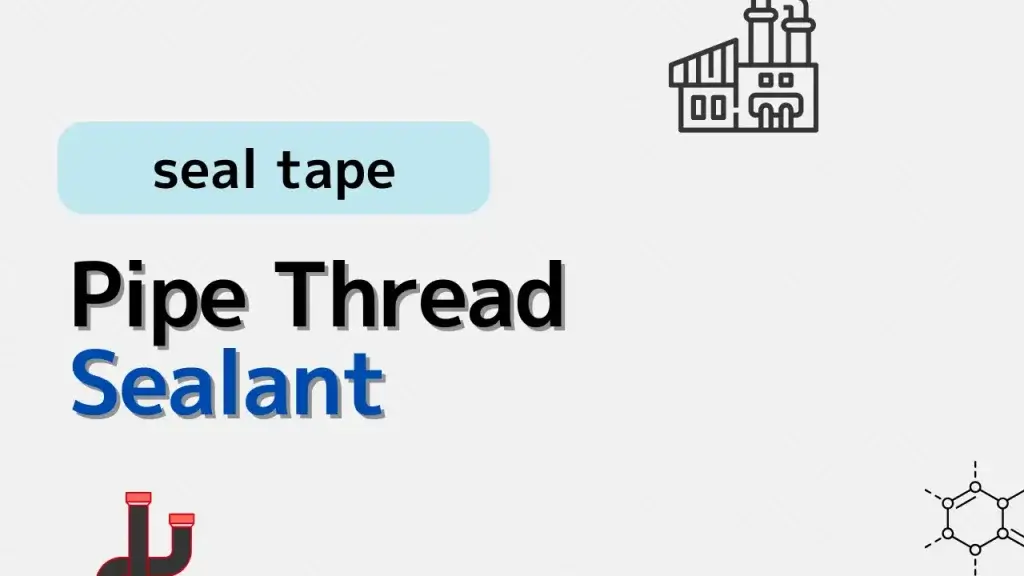Choosing the correct pipe thread sealant is crucial for ensuring leak-free piping connections in chemical plants and industrial facilities.
With various types available, understanding their characteristics and applications helps engineers avoid costly failures and maintenance issues.
Introducing articles from plantengineering.com.
It is very scary to use threaded joints in piping in chemical plants.
They are used in limited locations, such as for safe air.
The most important thing at this time is sealing.
There are sealants that can be used as sealing materials to prevent leaks.
sealing tape
It is common to wrap a thin fluororesin tape called sealing tape around threaded joints.
In order to fill the gap between the two parts of a threaded joint, a thin, corrosion-resistant and strong material is required.
As is the case with threaded joints in general, it is not very strong and is difficult to use at high and low temperatures.
It should only be used with air, which is less dangerous, and liquids with a low risk frequency.
Apply resin and harden
It is a liquid type, not a solid type like sealing tape.
A resin that hardens in air is applied to the screw joint to seal it.
It has more flexibility and sealing ability than sealing tape, but the risk of leakage into the contents increases.
Another weakness is its low temperature and corrosion resistance.
It is more intended for repair purposes.
welding
Welding is very rare on threaded joints.
Although welding makes it impossible to replace later, it gives a sense of reliability immediately after repair.
This is for emergency repair purposes, as liquid pools form inside the threaded joint and the progression of corrosion cannot be stopped.
Using fire in chemical plants is dangerous, so this method is not used unless it is absolutely necessary.
LINK
Conclusion
Selecting the right pipe thread sealant involves balancing chemical resistance, temperature and pressure requirements, and ease of use. Proper choice and application reduce leaks, downtime, and maintenance costs—essential for safe, reliable plant operation.
